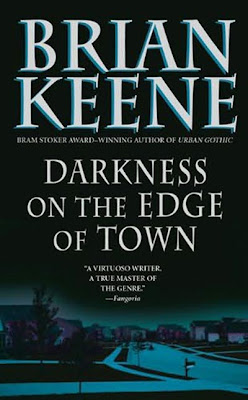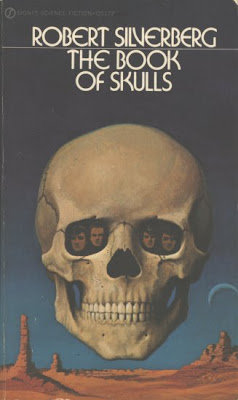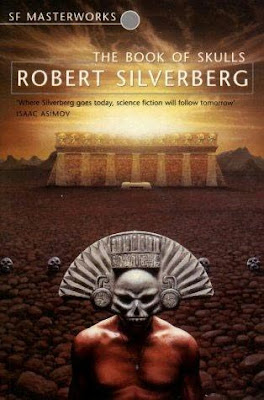Here’s the first finished book of 2011 – give it up, people! Woo yeah, Happy New Year!
EVERYBODY INTO THE POOL!!OK now calm down. Just take a minute to calm down. There’s… here there’s towels for people who need them. I was only kidding about the pool, geez guys.

The most incredible thing about finishing
The Monster Show is that I can now finally return it to the Leith Public Library, where it’s clocking up monster-sized fines on its second withdrawal (I am terrible with library books, or borrowed books of any kind). Ha ha get it, I said "monster sized". I could read the 6 o'clock news, I seriously could. The second most incredible thing about finishing it was witnessing how much it managed to go off the rails in the last 100 pages, after a good start.
This is the 4th or 5th history of the horror genre I’ve read, more or less. I read a lot of these books actually, from analysis of the (film) genre in general, to interview books with novelists or film makers, book-length essays on people’s careers, etc.
The Monster Show is a different sort of book to most of what I’ve read, in that it’s a “cultural history”, & it’s kind of insane.
I suspect this has a lot to do with the author. David J. Skal, apart from having a name like a David J. Schow tribute band, previously wrote a book called
Hollywood Gothic, which apparently charted the history of
Dracula from novel to play to the initial Tod Browning film adaptation.
The Monster Show spends around 100 of its 400 pages covering this very subject again – in fact the book reads suspiciously like something his agent or editor talked him into writing afterwards.
“So, David, the Dracula book is a success. What’s next?”
“Well… I have an idea for a book… sort of a history of, er,
Dracula.”
(Beat)
“Yeah, good. Promising. Hmm. Let’s expand on this idea a little. Maybe it could be a sort of history of horror in general…”
“What, you mean like… like
Frankenstein too?”
Skal doesn’t write horror history, so much as he gushes at length about horror and his perception of it, and what this motif means in this context. His forte, & interest, is clearly the Universal monsters of the 1930s and 40s. Around 60% of the book covers this period, & this is a good thing, since Skal knows all of the production histories, the people, & the weird stories surrounding them. Tod Browning, for instance, is W-E-I-R-D. In fact, since he’s more interesting than me reviewing a book you’ll almost certainly never read, I’ll summarise for you now.
Tod Browning grew up in the US countryside where he sang in the choir & had “a voice like an angel”, but ran away to join the circus at 13, where he was a barker for sideshow freaks, & was himself a freak act where they’d fake his death, bury him alive outside the fairground, & then dig him up 1-2 days later. Young Tod would lie underground, breathing through a tube & unable to move for up to 48 hours. Later when the sideshow got busted for fraud (Tod had not actually been killed) he drifted into the film business, where he made strange light-hearted movies about circus people. An A-list director, he started drinking like a fish & drove his car off the road, killing a young star & starlet, after which he made no public appearances for a year. The extent of his injuries was never disclosed, but he had a fake jaw which he would sometimes detach & hand to people. Went back to making movies (although everyone hated him because of the dead star & starlet), & started making weird thrillers with a heavy body mutilation/castration theme. “Lon Chaney has no arms, but is a killer!”. “Lon Chaney has no legs, but is out for revenge!”. Etc. Sat by drunk & inattentive while someone else directed Dracula, which was a massive success despite being a crap film apparently, then pulled it together to make Freaks, which bombed on account of being WAY TOO MUCH for 1930s audiences. Never had kids, never gave interviews except when ghost writing interviews for his actors. Got blacklisted for being a drunk, crept off & died somewhere.

Strange man.
The real fun of Skal’s book is where he starts psychoanalysing popular consciousness. Horror hit it big after the Great War, when the streets were crammed with mutilated veterans and the Depression was looming as a second big apocolaypse (Hmm, that figures). Horror has recurring themes of asexual reproduction – this is because men are scared of having sex with women (... really? Oh.). Horror is popular with boys & young men because the body transformations echo the ravages of puberty (the… ravages?). Etc. It’s all conjecture, and some of it is pretty damn silly, but I have a lot of time for this sort of thing, just as I have a lot of time for standing around at parties listening to drunk people talk about how aliens built the pyramids.
As I say, Skal’s on form talking about the 30s, 40s, & 50s. You can tell he’s enjoying himself & the book is flying past, & then you realise he’s only left about 100 pages to talk about the 60s, 70s & 80s (the book was published in 1993). This is sort of a problem, for a book attempting to be a cultural history of horror in the 20th century. Any fan worth anything will tell you that the 70s are the GLORY DAYS of the genre, & the 80s hold a special place in my heart. Skal’s rushed summary overlooks dozens (well, thousands) of films, film makers, & writers who are central to the genre. You get the feeling that he hasn’t even seen all of the films he’s talking about – there are a couple of strange errors in his plot summaries – & the “psychoanalysing of the popular consciousness” starts getting loopy. Carrie (& Stephen King’s career in general) are all about socioeconomic class & status consciousness. AIDS created the Goths, who are blood-drinking proto-vampires. Then holy mother of God, here he goes on cosmetic surgery in the 80s:
The relationship between the (usually) female patient and the (usually) male cosmetisurgeon is often morbidly eroticised along horror movie lines… as in prostitution, the woman’s sexual pleasure is not the point. The brides of science are there to please the scientist and lie on his table. Their bodies, in all likelihood, will never please him; he will cut them again and again, as in a slow-motion, socially sanctioned slasher movie in miniature… It goes on for two pages like that.
Strange man.
I’m not necessarily complaining. I hate cosmetic surgery too (damn that crazy eroto-surgical ballet of death!). & the last section of the book is a cracking good read, just for different reasons that I think were intended. It’s less a genre history than a rabid prose poem by this stage. Maybe every horror fan should write a book like this, or at least an essay or two – I think these tropes mean different things to everyone.
In general, Skal loves digging around in the cultural unconscious looking for the sick bits, holding them up & saying “see – it’s here! It’s all here! People who aren’t horror fans are just as damaged as the rest of us!!” Good on him, I guess. Although increasingly I’m confused by people who take it upon themselves to make long arguments for why it’s OK to like horror. Of course it’s OK to like horror. Horror is normal. It’s been a key component of mythology, folktales & fiction since the beginning of time. The only weird thing about horror is that it got excised from storytelling a couple of centuries ago & had to creep back as its own genre. People should have to explain why they
don’t like horror. Honestly.
God, what an incredibly long review. I’ll wrap it up now.
GOOD? – Ah yeah? It’s all right. Don’t make this the first genre history you read though, or if you do, don’t kind yourself you have a well-rounded education.
FILE UNDER… Genre history, “Golden Age” of horror, creative expression posing as non-fiction.
WOULD GO WELL WITH… A more dedicated study like Carlos Clarens’
Horror Movies (thanks Pearce), or Kim Newman’s
Nightmare Movies (thanks Pearce). For more creative interpretations of the genre & what it means, try the excellent interview collection
Faces of Fear (thanks Pearce). Pearce has leant me almost all of the horror non-fiction I’ve read. He should really write one of these books one day.










